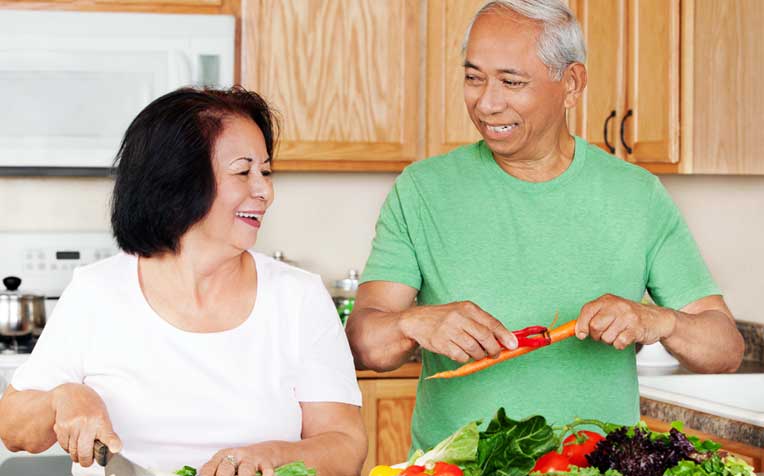
Malnutrition in the elderly is common and has serious implications such as general poor health, prolonged hospital stay and poor wound healing.
To be fit and healthy, you need to have a balanced and nutritious diet. This is particularly important for older adults, who are more vulnerable to life-threatening illnesses. Dr Lim Si Ching, Senior Consultant, Geriatric Medicine from Changi General Hospital (CGH), a member of the SingHealth group, shares the common causes of malnutrition in the elderly.
Malnutrition – which can be overnutrition or undernutrition – is common among the elderly. It has serious implications such as general poor health, increased morbidity and mortality, prolonged hospital stay, poor wound healing and pressure sores. Therefore, early assessment of the nutritional status among older people is important to identify those who are malnourished or at risk of malnutrition, in order to prevent a further decline in weight, physical function and quality of life.
Undernutrition happens when caloric intake is less than the daily requirement, with deficiencies of macronutrients (proteins, carbohydrates and fats) and micronutrients (vitamins and trace elements), resulting in overall weight loss, muscle loss and frailty.
Among the elderly, the prevalence of undernutrition varies between 15 per cent of community-dwelling elderly and 85 per cent among those in a nursing home.
Causes of undernutrition in the elderly
Social factors
- Social circumstances, such as isolation, mean that the elderly person ends up eating alone and often has no desire to cook proper meals for him/herself.
- Food rationing because of difficulties in getting supplies.
- Financial constraints.
Medical reasons
- Chronic organ dysfunction resulting in a poor appetite.
- Multiple medications.
- Abnormalities of the gastrointestinal tract, such as constipation or ulcers, may cause a loss of appetite.
- Functional dysphagia (swallowing difficulty) is common among the elderly, particularly those with neurodegenerative disorders. The elderly with dysphagia may have unpalatable modified diets and need assistance with feeding.
- The elderly with dementia may have behavioural and mood symptoms that interfere with food intake, particularly if they are hyperactive (tendency to wander, feel restless or become agitated) or reside in an institution where mealtimes are often scheduled and rushed.
How to identify undernutrition in the elderly
Look out for any of these warning signs:
- Unexpected weight loss of five to 10 per cent over six months
- Loose clothing or jewellery
- Newfound difficulty in getting up from a sitting position, unsteadiness of walking gait and/or repeated falls
Common symptoms of undernutrition include:
- Tiredness, fatigue or apathy
- Longer healing times for wounds
- Loss of fat
- Reduced muscle mass
- Reduced tissue mass
Read on to learn about essential nutrients the elderly need for a balanced diet.
Ref: N18
Contributed by


















 Get it on Google Play
Get it on Google Play